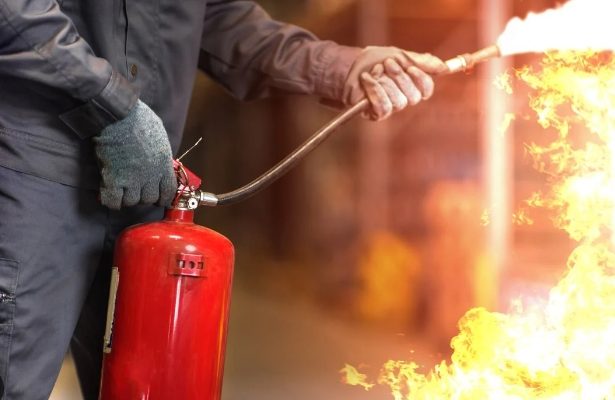
Fire safety is a critical aspect of any building or facility, and fire extinguishers play a vital role in mitigating the risks associated with fires. However, simply having fire extinguishers installed is not enough. Regular inspections are necessary to ensure that these devices are in proper working condition and ready to be used in case of an emergency. In this article, we will explore the importance of regular fire extinguisher inspections and provide valuable insights into how often they should be conducted.
- Compliance with Regulations and Standards:
Fire extinguisher inspections are not only essential for safety but also for compliance with regulations and standards. Various regulatory bodies, such as the National Fire Protection Association (NFPA) in the United States, have established guidelines and codes that mandate regular inspections. These regulations aim to ensure that fire extinguishers are maintained, inspected, and tested at specified intervals to guarantee their effectiveness. - Ensuring Proper Functionality:
Regular inspections help ensure that fire extinguishers are in proper working condition. Over time, factors such as environmental conditions, accidental damage, or tampering can affect the functionality of these devices. Inspections involve checking for visible signs of damage, verifying pressure levels, inspecting seals and safety pins, and ensuring that the extinguisher is easily accessible. By identifying and addressing any issues promptly, inspections help maintain the reliability and effectiveness of fire extinguishers. - Identifying Maintenance and Service Needs:
In addition to functionality, inspections also help identify maintenance and service needs. Fire extinguishers require periodic maintenance, such as hydrostatic testing and recharging, to ensure their optimal performance. Regular inspections allow professionals to assess the condition of the extinguishers and determine if any maintenance or service is required. This proactive approach helps prevent potential failures during emergencies and ensures that the fire extinguishers are always ready for use. - Frequency of Inspections:
The frequency of fire extinguisher inspections depends on various factors, including local regulations, the type of fire extinguisher, and the environment in which it is installed. Generally, monthly visual inspections are recommended to check for any visible signs of damage or tampering. Additionally, annual inspections conducted by qualified professionals are necessary to perform more detailed checks and maintenance tasks. These inspections involve verifying pressure levels, inspecting internal components, and conducting functional tests.
Conclusion:
Regular fire extinguisher inspections are crucial for maintaining a safe environment and complying with regulations. By ensuring proper functionality, identifying maintenance needs, and adhering to inspection schedules, businesses and individuals can significantly reduce the risks associated with fires. Remember, fire safety is everyone’s responsibility, and regular inspections play a vital role in keeping people and property safe from the devastating effects of fire.

